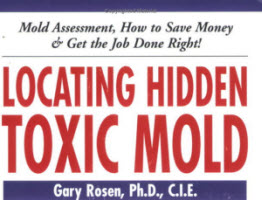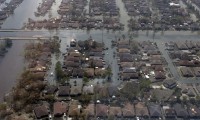Water Damage Related Mold Growth and Your Health
There was a time when mold was a given and ignored. Water damage repair and restoration never dealt with mold and its affects on the human body. There was water damage repair in our church for years, leaking roofs, gutters, and leaking foundations. The leaks were always fixed but there was no attention to the damage from mold or the effect it would have on the people in the church.
A new pastor arrived and immediately began to get sick, a variety of symptoms with no connection to the mold. As these things happen, some carpet was replaced, mold was found and a mold expert, or mold remediator was called in. The mold in the area of the gym was removed and treated but the pastor continued to be ill. It did not take long to find mold throughout the church and it just so happened to severely affect him. Both the pastor and the church building are being treated for mold infestation from water damage.
Removal and treatment of mold is expensive. In most cases of water damage mold is prevented from growing, however, if mold is found after a water damage incident, mold remediation and mold removal is usually not paid for by your insurance company….. so, it is wise to chose your water damage repair contractor carefully!
Health Effects That May Be Caused by Inhaling Mold or Mold Spores
Inhalation exposure to mold indoors can cause health effects in some people. Molds produce allergens (substances that can cause allergic reactions), irritants, and, in some cases, potentially toxic substances or chemicals (mycotoxins). Inhaling or touching mold or mold spores may cause allergic reactions in sensitive individuals. Mold does not have to be alive to cause an allergic reaction. Dead or alive, mold can cause allergic reactions in some people.
Allergic Reactions, Asthma Attacks,
Irritant Effects Coming From Mold and
Water Related Damage
Allergic reactions to mold are common and can be immediate or delayed. Repeated or single exposure to mold, mold spores, or mold fragments may cause non-sensitive individuals to become sensitive to mold, and repeated exposure has the potential to increase sensitivity. Allergic responses include hay fever-like symptoms such as headache, sneezing, runny nose, red eyes, and skin rash (dermatitis). Molds can cause asthma attacks in people with asthma who are allergic to mold. In addition, molds can irritate the eyes, skin, nose, throat, and lungs of individuals whether or not they are allergic to mold.
Other Water Damage Related Health Effects
Breathing in mold may also cause hypersensitivity pneumonitis, an uncommon disease that resembles bacterial pneumonia. In addition, mold exposure may result in opportunistic infections in persons whose immune systems are weakened or suppressed.
When mold grows indoors, the occupants of a building may begin to report odors and a variety of symptoms including headaches, difficulty breathing, skin irritation, allergic reactions, and aggravated asthma symptoms. These and other symptoms may be associated with exposure to mold. But all of these symptoms may be caused by other exposures or conditions unrelated to mold growth. Therefore, it is important not to assume that, whenever any of these symptoms occurs, mold is the cause.
For more detailed information on mold and its health effects, consult a health professional. You may also wish to consult your state or local health department. (Also see the Resource List for additional information.)
Water Damaged Damp Buildings
Although mold is frequently found in damp buildings, it is not the only potential contaminant — biological contaminants other than mold, and non-biological contaminants are often present and may also cause health effects. Damp buildings may attract rodents and other pests. Damp or wet building components and furnishings may release chemicals indoors.
Potential contaminants in damp or wet buildings include bacteria, dust mites, cockroaches and other pests, as well as chemicals emitted by damp building materials and furnishings. For more information on damp buildings and health effects, see the 2004 Institute of Medicine Report, Damp Indoor Spaces and Health, published by The National Academies Press in Washington, DC – See Resource List.
An incident with water damage regardless the source can almost always result in mold growth. Mold growth will make you sick eventually and the dampness and moisture will attract other health related diseases and sickness so make sure you contact a professional water mitgation expert and properly do a “dryout” using professional equipment necessary to do a proper job.








1 Comments
testing commenting function of blog